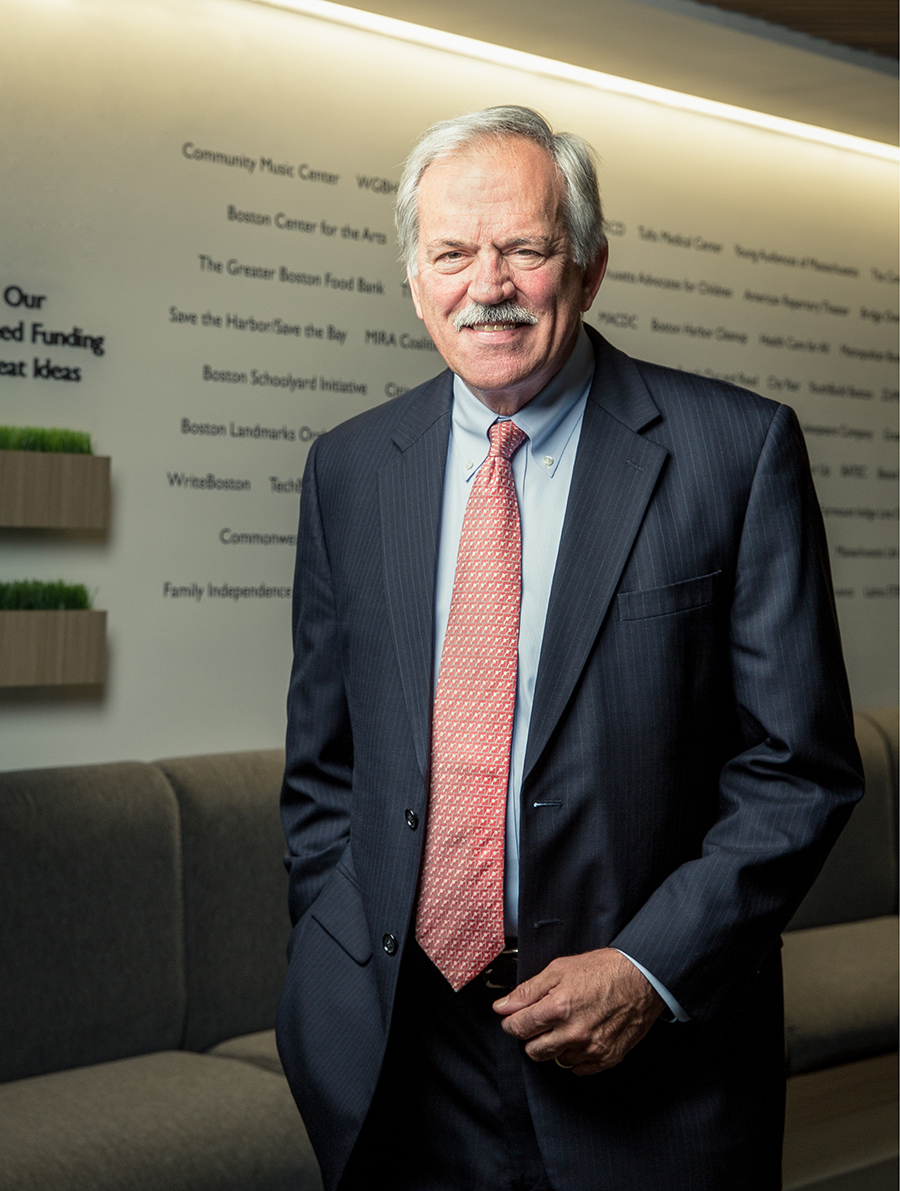Three Questions for Paul Grogan
The Boston Foundation’s president and CEO has great expectations for the city’s tech bigwigs. —By Scott Van Voorhis

Portrait by Jason Grow
The Boston Foundation hasn’t been shy about making its voice heard. In your view, what are some of the greatest obstacles facing the Hub right now?
Some of our biggest problems are closely related to our biggest successes. Certainly the income gap—we have created an economy where there is very high compensation if you have the right credentials and education. The issue is one of opportunity: How do we get many more people qualified to take their place in this knowledge economy? Better preparation in K–12 and community colleges is very important in meeting labor-force demands.
What role should Boston’s burgeoning tech industry play in lending a helping hand?
If you think about the institutions that define Boston, they are the universities and hospitals and cultural institutions. They would not be as robust as they are without very robust philanthropy. A lot of very successful people in our community have benefited from these incredible nonprofit institutions, but we have to continue to make the case for it and not be complacent. The technology and life science communities are the new growth sectors. Are their leaders going to participate civically? Are they going to participate philanthropically? A lot of people get it; they understand what’s at stake.
You’ve noted that the tax-reform bill currently being debated in Washington could pose problems for charitable institutions. How so?
There are some things that could really be damaging to philanthropy. The repeal of the estate tax, for one—it generates a lot of charitable contributions. The wealthy would rather give their money to a favorite cause or institution than give it to the government. And the lower tax rates make the charitable deduction less valuable. Our philanthropic institutions are one of the greatest strengths of American society. It would be a shame to have them weakened.


